





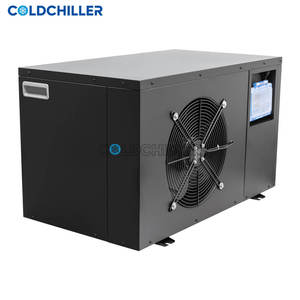













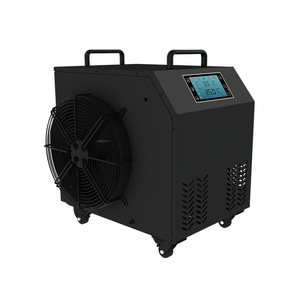
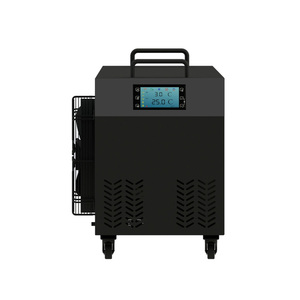
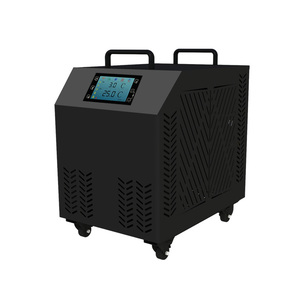













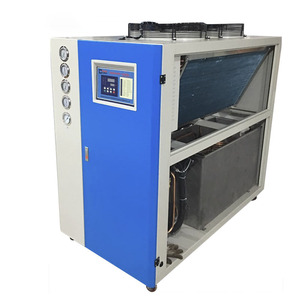

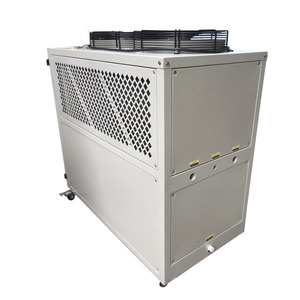
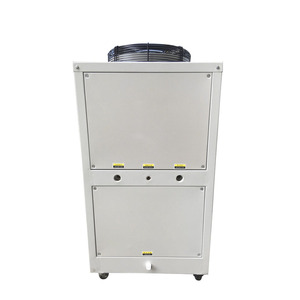























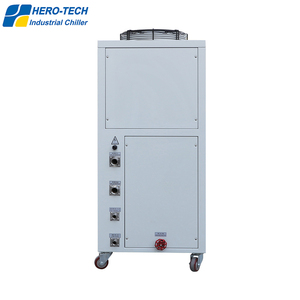










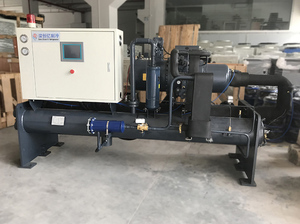


Top categories
About propylene glycol chiller
A propylene glycol chiller is a refrigeration system that uses propylene glycol as a coolant to maintain low temperatures in various industrial, commercial, and residential applications. This coolant is widely used in HVAC systems, food and beverage industries, and medical and pharmaceutical processes. The propylene glycol chiller circulates the glycol through a closed-loop system, absorbing heat from the target environment and transferring it to the chiller's refrigeration system for dissipation, ensuring precise and consistent cooling. Explore the efficiency and benefits of a propylene glycol chiller.
Advantages of a Propylene Glycol Chiller
A key advantage of a propylene glycol cooling system is its ability to maintain stable and precise temperatures, crucial for applications requiring close temperature control. This precision ensures product quality and process efficiency, making it ideal for industries like pharmaceuticals, where temperature variations can compromise product integrity. Additionally, the non-toxic nature of propylene glycol makes it a safe choice for applications involving direct or incidental contact with humans, such as in food and beverage industries. The versatility of a propylene glycol chiller extends to its compatibility with different materials, offering corrosion resistance and protection to equipment and piping systems. Furthermore, the viscosity of propylene glycol allows for efficient heat transfer, enhancing the chiller's overall performance and energy efficiency. These advantages collectively make a propylene glycol chiller a reliable and cost-effective solution for various cooling needs.
Applications of a Propylene Glycol Chiller
The pharmaceutical industry relies on precise temperature control to maintain the integrity of sensitive drugs and vaccines. In pharmaceutical manufacturing, a propylene glycol chiller system is used to cool and control the temperature of processes, ensuring product quality and compliance with regulatory standards. Close temperature control is essential in the food and beverage industry to preserve the freshness and quality of products. A propylene glycol beer chiller is commonly used in breweries to maintain the ideal temperature for fermentation and storage of beer, contributing to its flavor and consistency. In the medical field, propylene glycol chillers play a crucial role in applications like MRI machines, where precise cooling is necessary to ensure equipment performance and patient comfort. In data centers, these chillers help maintain optimal temperatures for sensitive electronic equipment, preventing overheating and ensuring uninterrupted operations. Their application extends to the printing industry, where they assist in controlling the temperature of printing presses, contributing to print quality and consistency. In HVAC systems, propylene glycol chillers are used for air conditioning in commercial and industrial buildings, providing efficient cooling while meeting environmental and safety standards. These diverse applications highlight the importance and versatility of propylene glycol chillers in various industries.
Maintenance of a Propylene Glycol Chiller
Regular maintenance is essential to ensure the optimal performance and longevity of a propylene glycol chiller. Monitoring and maintaining the glycol concentration within the recommended levels is crucial for efficient heat transfer and preventing issues like freezing. It is important to check for leaks and ensure the integrity of the chiller's components, including piping and seals, to prevent glycol loss and system inefficiencies. Regularly inspecting and cleaning the heat exchangers, evaporators, and condensers help maintain their efficiency. Additionally, changing filters and ensuring proper airflow is essential for the chiller's refrigeration system. Monitoring the chiller's overall performance, including temperature control and energy consumption, can help identify any potential issues early. Adhering to a comprehensive maintenance schedule, including tasks like annual inspections and glycol quality checks, can help prevent unexpected downtime and ensure the continued reliability of the propylene glycol chiller.
















